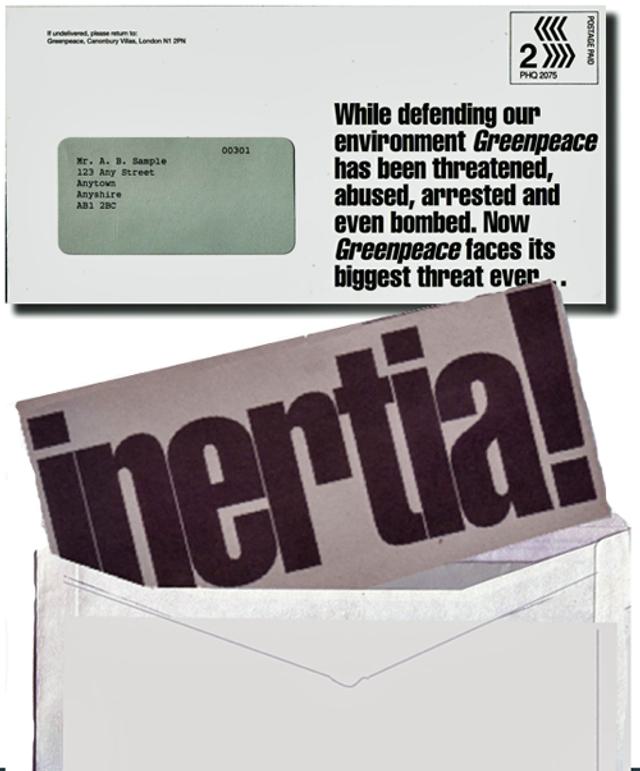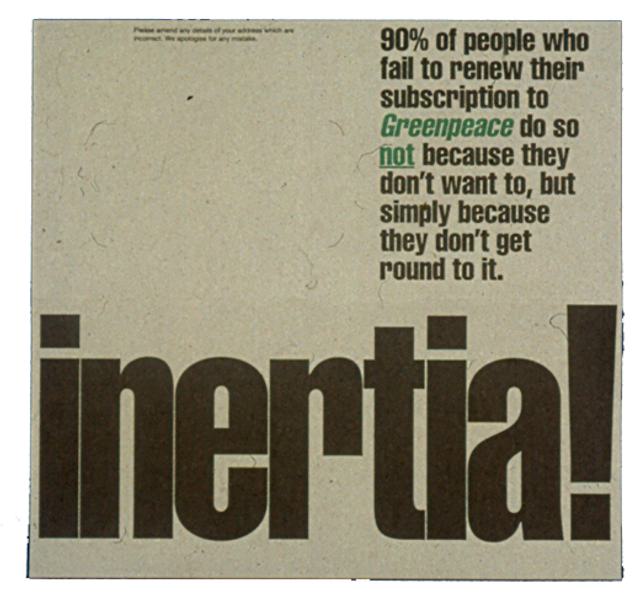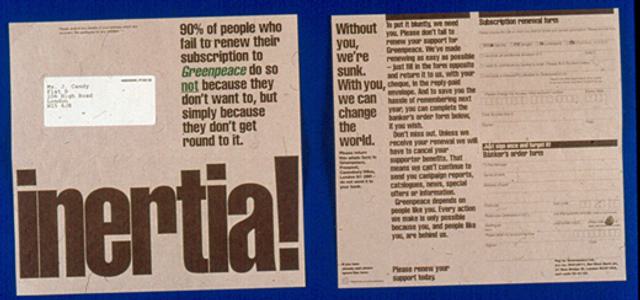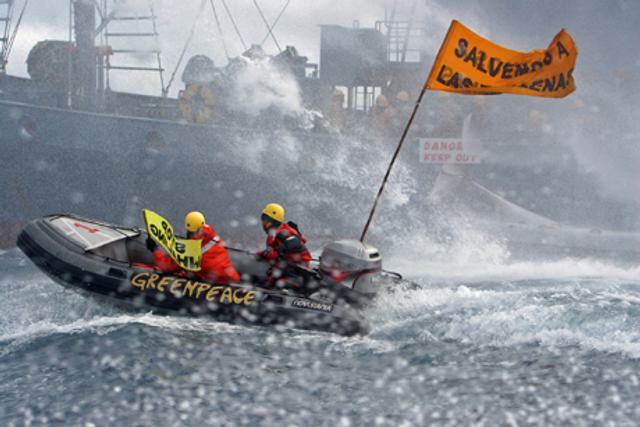Greenpeace UK: their cycle of renewal and reactivation mailings – the inertia mailing
- Exhibited by
- SOFII
- Added
- June 20, 2010
- Medium of Communication
- Direct mail
- Target Audience
- Individuals, planned gift, regular gift
- Type of Charity
- Country of Origin
- UK
- Date of first appearance
- Unknown
SOFII’s view
The last in this series of renewal and reactivation appeals is the cleverest, we feel. It introduces supporters who have resisted all the other requests in the cycle to the concept of a new and very dangerous threat to the already threatened environment: the donor's own inertia. Part of human nature, inertia is referred to in many ways, perhaps the best of which is the Spanish mañana – 'Oh, OK, I'll do that tomorrow'. And it never gets done. So, an understandable and hopefully mostly forgivable insult becomes one last chance to keep a valued supporter 'in the fold'.
Creator / originator
Burnett Associates working with Annie Moreton and Charlotte Grimshaw at Greenpeace UK.
Summary / objectives
This final mailing in the series neatly presents supporters, who in recent months have resisted four previous urgent appeals to renew their subscription, with a dilemma. The environment is being trashed and Greenpeace is restricted from fighting the process simply because they, one-time Greenpeace supporters, can't get themselves in gear sufficiently to sign a simple piece of paper and renew for a bit longer.
Background
This pack really did work. But, of course, not with everyone. There was actually one last attempt beyond this one (you didn't really expect Greenpeace to give up, did you?). This was simply a colourful card saying GOODBYE and thank you.
That often worked, where all the others had failed. Inertia is a funny thing.
Special characteristics
Very 'in your face', very Greenpeace. SOFII doesn't have an illustration of the final 'thank-you' mailing, so if you can supply one or add any detail to these exhibits, please contact Carolina.
Influence / impact
These were expensive to produce and took a lot of organising, so provided a powerful incentive to move supporters as rapidly as possible to regular monthly giving by direct debit.
Details
Results are not available but this series worked much harder than the renewal series it replaced.
Merits
The entire series is a good example of an important fundraising mechanism in the process of being replaced by a better way of doing things.




Also in Categories
-
-
















